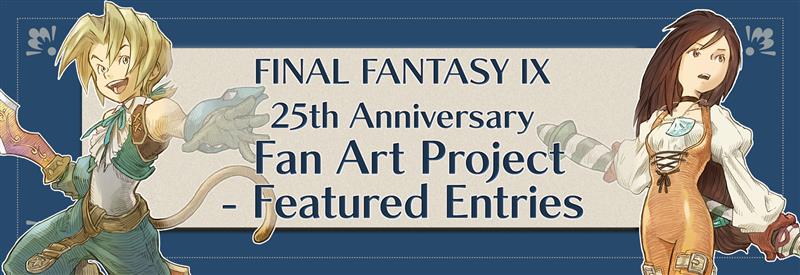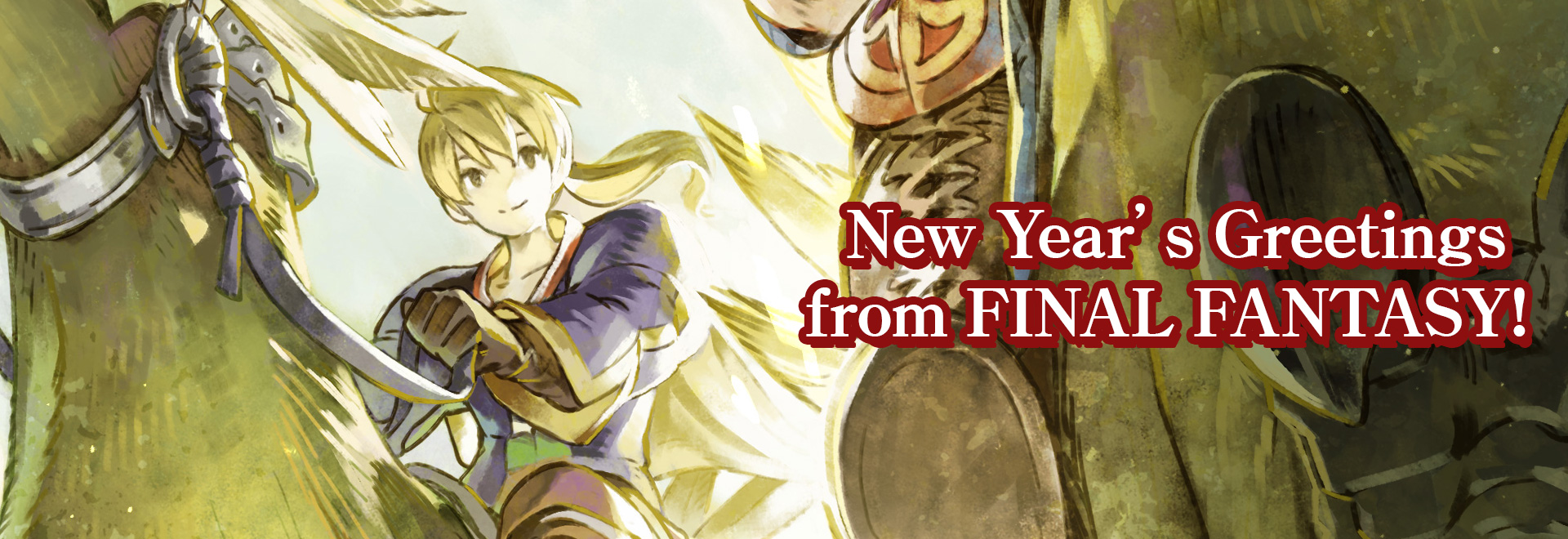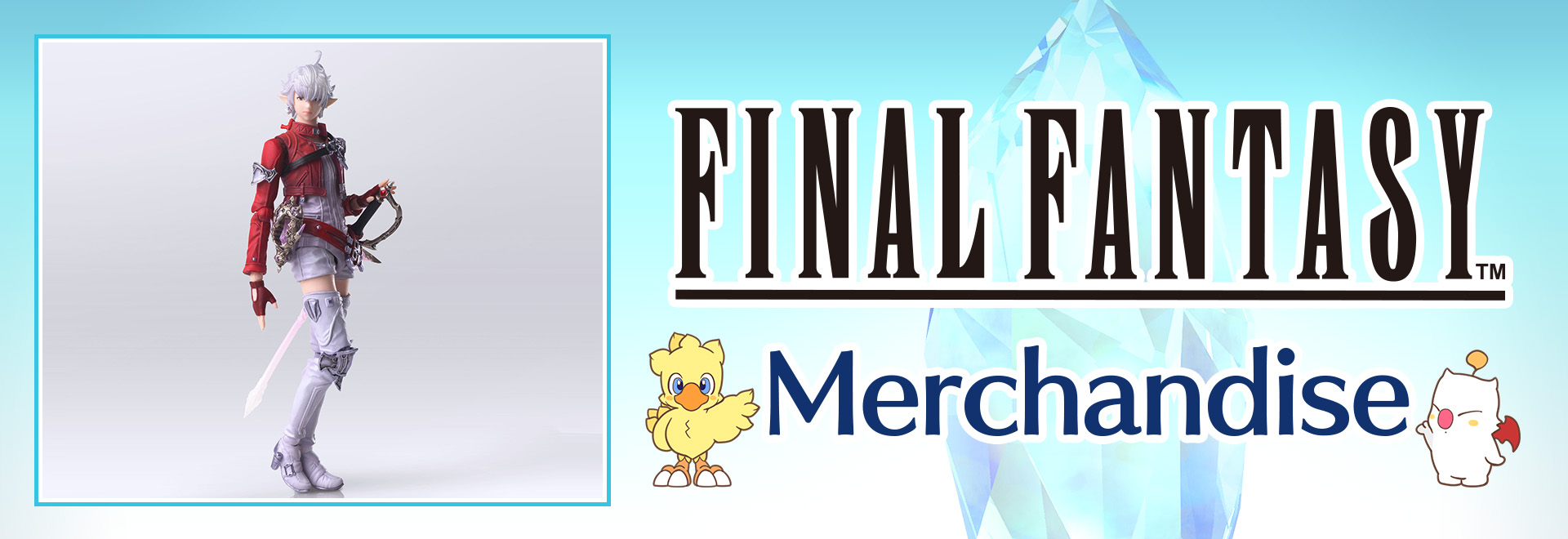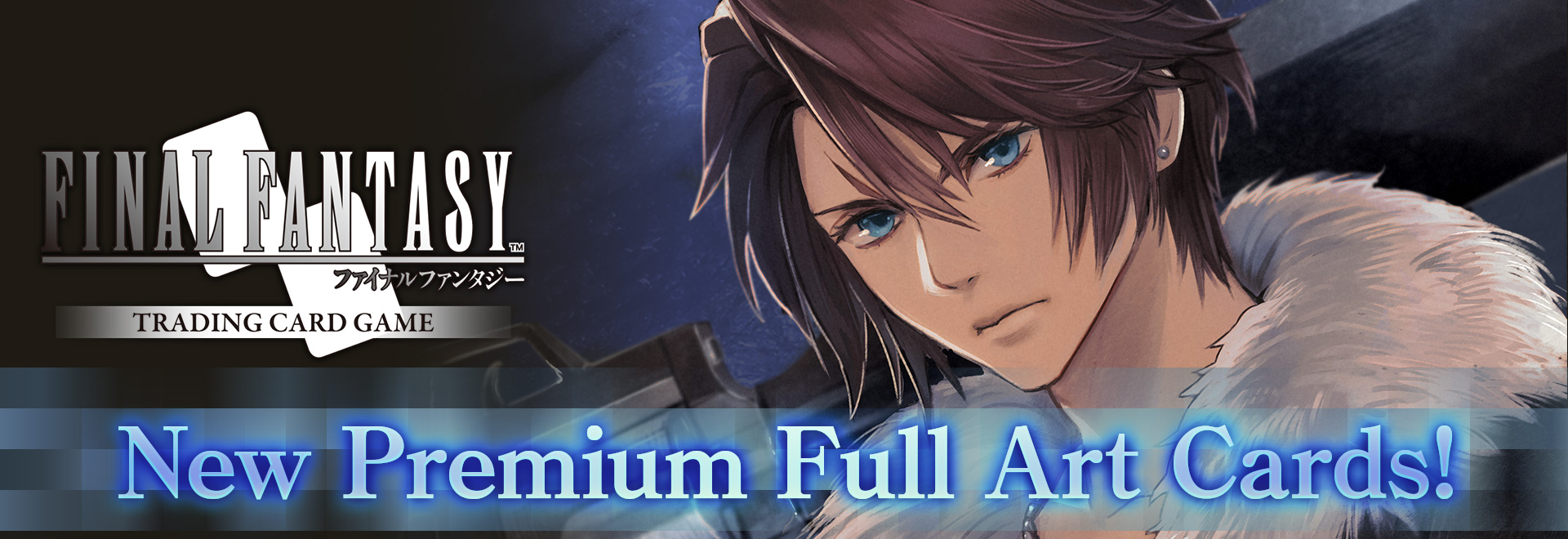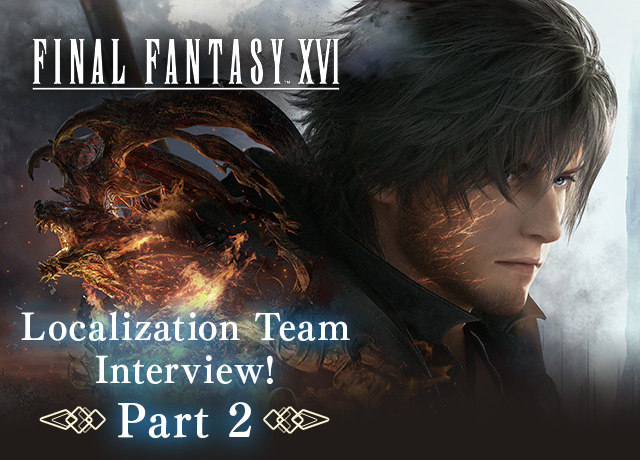
In the final part of our interview with the FINAL FANTASY XVI localization team, we dig even further into the details of what makes FFXVI’s localization so unique, including the “Active Time Lore” system, the Eikons and more! If you missed part 1, where we take a look at FFXVI’s localization overall, you can read that here!
Interviewees:
- Michael-Christopher Koji Fox (Localization Director)
- Eve Chauviré (French Localization Director)
- Manuel Gutierrez (Castilian Spanish Localization Director)
●I’d like to start off the continuation of our time together with something we ask in all our localization team interviews, just to see how it differs between each title. What challenges did you have working with a game that has so much content – story, dialogue, flavor text, etc? How does the localization team manage that?
Koji (Localization Director):
Well, actually, when it comes to just the main scenario and the dialogue and the script, it was probably one of the smallest projects that I’ve worked on. I think the game felt a little more massive because the cut scenes were very fleshed out, but the actual dialogue within the cutscenes, at least compared to everything I’ve worked on in the past, was a lot tighter. You had more natural conversation, a lot of things were implied. I think things were moving a little bit faster than, say, in a game like FINAL FANTASY XIV where you’ll have fifty lines of dialogue from one person before the next person then responds with a forty-line piece of dialogue, and that’s just one cutscene. I mean, literally, I’ve translated quest lines longer in FFXIV than a lot of entire sections of FFXVI.
A lot of the text did, though, come from the active time lore and world expansion content. I think there was four or five times more text that was non-voiced than voiced.
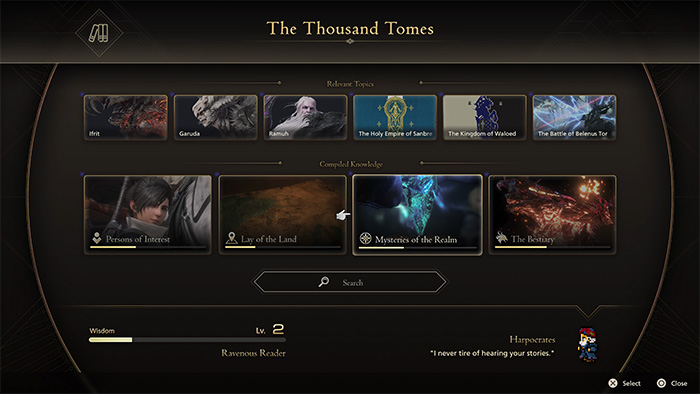
When it came to the voiced portion, though, while there were twelve or thirteen hours of cutscenes, there wasn’t really a whole lot of dialogue. There weren’t many cutscenes with the person just standing there talking for a long time, characters alternate a lot – you get that quick burst of information, and you’re done.
So, in that sense, it was actually really fun to translate this because a lot of times when translating from Japanese we’re thinking “okay, a normal person would say this in like, two sentences, but I have sixteen sentences to say the same thing – how am I going to do that without sounding redundant?”. That forces us to change a lot of stuff, whereas here you literally only have three or four lines of this back and forth so we have to concentrate everything you need to say in those lines, and then add anything that you can’t into the actual acting - the expressions on their faces, or the emotion with which they’re delivering - because you don’t have space. So, in a sense that was a challenge, but it was also very freeing because there is not a lot of fat on the meat.
●A lot of the dialogue indeed sounded really natural! That makes sense. What about for French, was there anything that made managing the text and so on challenging?
Eve (French Localization Director):
By far the toughest challenge for us was to adapt our lines' timing for the voice recording of the cutscenes. We had to very precisely match the syncing of the lip movements. This time around it was based on the English lip animation, which might sound easy because English seems close to French, but was actually not that easy, as we realized. [laughs] The speaking speed, in particular, is different and even if words look close in spelling, they often aren’t the same number of syllables in speech. The synchronization work actually takes more time than the translation itself. For that reason, we had up to seven translators working on the French version simultaneously.
For example, in English there are sometimes pauses in the middle of sentences, and it’s difficult to replicate the same pauses in the same places in French. So when there’s a long sentence in English that has, for example, one or two pauses for dramatic effect in the middle, in French we may have to make three short sentences because the pauses wouldn’t sound too natural. We often had to completely rethink our initial translation and the way we divide information or place sentences to match exactly the same number of syllables of the English wave form, not to mention the lip movement itself.
The voice acting industry is big in France and the standards are high, and for that reason players are used to and expect high quality voice overs, in terms of acting, lip sync and casting choices. That made this project a challenge.
Manuel (Castilian Spanish Localization Director):
For European Spanish, the dialogue itself turned out to be pretty easy. Sometimes Japanese can be quite vague, which works well for the Japanese audience, but doesn't always translate effectively into Western languages. In previous projects, we'd spend many hours thinking of ways to fit everything together and maintain coherence with the original text. However, with English, much of the groundwork had already been laid by the English team, resulting in a well structured script from the outset, so the dialogue posed far fewer challenges.
●Great, that’s awesome to hear. This came up briefly already, but let’s dig deeper into the Active Time Lore system as its one of the more unique features of FINAL FANTASY XVI. Obviously it was constantly updated, how do you approach something like that? Are there any specific tools you used that indicated when certain text gets changed or edits happen?
Koji (Localization Director):
It would have been great if we had exclusive tools, but literally the Active Time Lore was created pretty much by one person on the Japanese team – Momoka Aono-san (UI designer for FFXVI) - with the help of a couple other writers. She would write the text, we would get it, translate it, and then she’d realize that something was missing or in the wrong place so they would add another entry or have to move things around. We did have a tool the team had created in Excel to show us when an ID had been updated, but there were so many it was very difficult to find them all. Especially when you have several hundred entries and they’re being constantly updated each day, some stuff ended up falling through the cracks.
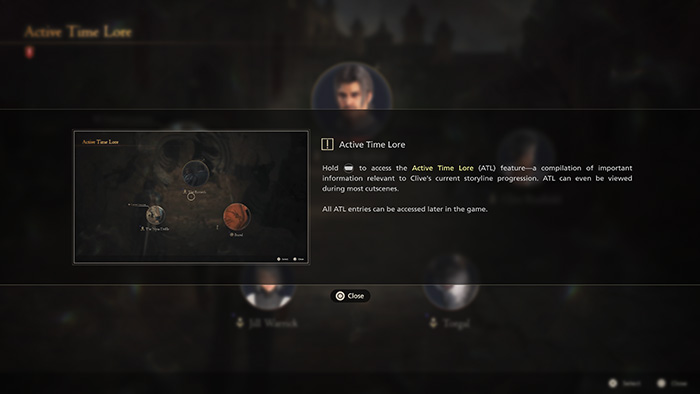
I remember there was one moment of sheer panic that I had probably two or three days before a data fix, where it turned out we had translated one of the entries to mention Ultima but the Japanese team had ninja-changed it to not mention Ultima anymore because it turned out that entry was being shown just before Ultima appeared, so you wouldn’t know who that was yet. But I didn’t catch it in the English because it was one of another hundred things that changed that day and I got all of the other ninety-nine, with just this one falling through the cracks. So, three days before master up, I realize it’s mentioning Ultima here. This is going to be a big spoiler for pretty much the whole English speaking audience and we need to fix it. I remember having to go to Nobuaki Komoto-san (FFXVI lead project manager) and bow my head and say “this is a real problem, can we update the text and have them remake the master to get this mention of Ultima out?” and ultimately they did. They were cool about it.
But I think a lot of our work with ATL is probably the same for all of the languages – basically you just open the file every day, look at all of the cells to see if something has changed, and hope you catch everything because it was constantly changing the whole time. And I get it because they wanted to make it so comprehensive that, in the middle of a cutscene, if you pause before a character says a line it won’t give you the information in that line, but the minute after they have, you can now pause it and you’ll get a different entry. So much work went into that, but it was all manual labor, there was no special matrix that they used where they could press a button and everything got rearranged – it was literally one person having to play every single cutscene checking every single bit of timing they’d have to move, and even then, it wasn’t perfect.
There were a lot of times where you have a three ID line and the middle one is where they say the name in Japanese, but in English we say the name in the first line because the subject gets moved there in translation. However, the trigger or flag for showing a name update comes at a different ID because they’re going off the Japanese and couldn’t split it the same as English. So, there are probably instances – not many – in the English language version where if you press it at a certain time you may have to wait another line until you finally see the change. In the future, it would be great if we could maybe have each language assign them so we could decide where the flag comes, because the word is going to come at a different spot in each language. But that’s something to think about next time. [laughs]
●Eve, I saw you nodding your head a lot. [laughs]
Eve (French Localization Director):
Yes, I remember for this feature we had to be extremely careful to not say anything that might be even slightly spoiler-ish, so we had to match what the Japanese said very precisely and not say any more than what was conveyed there. At the same time, though, we also sometimes wanted to add some more details to give better substance and flavor to the articles, so we struggled wondering what could be said at what point and would sometimes start up the game and check to see where exactly the article update happened. As we translated and updated the text in parallel as the source Japanese was being written, we were able to avoid accidental spoilers.
There were also a few lore entries where you have a character that would be called something like “mysterious woman”, then her name is mentioned in the cutscene and the ATL entry changes to what her actual name is at that very moment. This is a great detail for the people who like to pause during cutscenes to read the articles, but there were times in our language where we said the name at a slightly different timing, like Jote's, so unfortunately it did not match perfectly even if we tried to adjust it after recording in French. I’d like to apologize to those people who pause after every line! It was a great idea to have information revealed in the encyclopedia in the middle of cutscenes - I thought that was a good feature for the lore lovers.
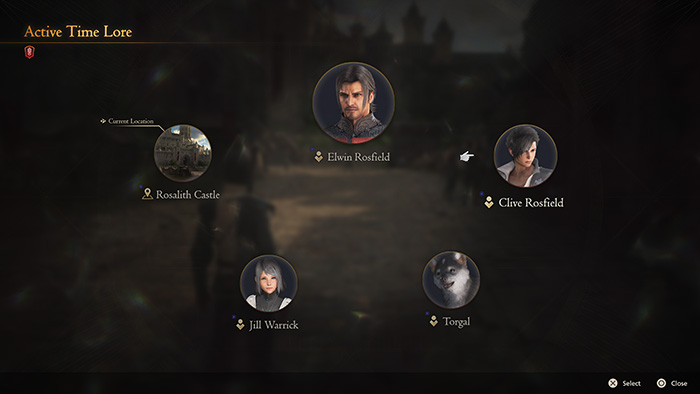
●Excellent! While certainly not after every line, I am one of those people who pauses a lot during cutscenes, so I appreciate all the work that went into that. [laughs]
Go ahead, Manuel, if you have anything you want to add.
Manuel (Castilian Spanish Localization Director):
We had to check hundreds and hundreds of cells every single day, and in the case of Castilian Spanish I remember we were actually pretty short on time so we ended up translating parts directly from Japanese when English translations weren't available yet. After that, we merged the text manually, every single day, from both English and Japanese, so our translation is a mix of both. The biggest problem is, like Koji said, things fall through the cracks. For example, one cell that contained a spoiler got into the final game because the Japanese was updated and we didn’t catch it. When I realized it was there I was mortified. It was fixed in an update, but until then I spent almost a month having nightmares about that ID, wishing players wouldn't read the entry at that specific point in the game.
Koji (Localization Director):
I think from everything that we’ve seen, it’s the one thing other than Masayoshi Soken’s (Composer for FFXVI) music everybody in the world agrees on – that the ATL system is just the best thing ever, and it should be used in every game moving forward. Because it is an amazing system and, again, props to Aono-san who worked on it.
Moving forward, I hope that everybody gets to use ATL in the future. But the thing is, there are a lot of aspects that are going to need to change or it will be a lot of extra work for a lot of people, not just the development team but localization in particular. There’s just so many moving parts so they’ll have to figure out something, but I guess that’s what we’ll tackle from now.
●Some people might be shocked to hear that all the information needed for Active Time Lore was managed manually, but you’d be surprised by how much of game development works similarly.
Koji (Localization Director):
Yeah, I imagine she had a wall of sticky notes and was just moving stuff around. I mean, I don’t know if she did, but it certainly felt like that was happening. [laughs]
Eve (French Localization Director):
I don’t know about Aono-san, but I know that as translators we sometimes get confused – I personally did because we often don’t work on scenes in chronological order, so sometimes we almost lose track after reviewing and recording many parts out of order. I imagine for a planner it might be the same, not being sure whether a piece of information is already known at a specific point.
As a player, you can only see the story in order but when you work on the game things are different - for example you might work on only the cutscenes first, then later do some in-between quests, then you are asked to tweak the intro, etc.
●And thank goodness for the Active Time Lore system, because even playing it in order as a player, there were times where I’d get confused about something in lore, and thankfully you could just pause it and check the ATL to clear things up.
●So this will be what is essentially the last question about game details from us – summonable monsters like Phoenix, Ifrit, and Shiva have been called various names over the course of the FINAL FANTASY series, this time Eikons. How is that determined?
Koji (Localization Director):
This is one of the first things that I decided when getting on the project, as it’s just one of the things that comes along with working on a new FINAL FANTASY – what are you going to call the summons? Because they’re different every time. I did this same thing when I was on FINAL FANTASY XIV 1.0, and I came up with the name Primals based on their story and what they are in that world. The people that believe in them think they’re the Primals, the first beings, the gods that created the Beast tribes. The Garlemald Empire, though, doesn’t believe in religion and calls them not Primals but Eikons because they look at them as different types of beings, only as representations or false gods - just false icons so we’ll call them the Eikons. And that’s where that came from.
Then, when moving on to FFXVI and learning about what the summons are in this world – they’re not something that the summoner calls forth, they’re actually the Dominant themselves manifesting as something else. So, basically, they’re representations of what is already within a Dominant, and I thought it’d be nice to do this cool callback to FINAL FANTASY XIV with the other less commonly-used name for the summons, while still being representative of the Dominant meaning-wise.
They’re also iconic in the sense that they’re taken from the old FINAL FANTASY titles, because that was one of the concepts that Takai-san and Yoshi-P had said they wanted - to include all of these legacy summons from the whole series, ones that, no matter what FINAL FANTASY you had played in the past, you would recognize. That’s why we chose Ifrit and Titan and Leviathan, they’re ones that everybody is familiar with no matter which FINAL FANTASY games you know. They are the most “iconic” of the “Eikons” – summons - and so for English it worked two ways and that’s kind of how I sold it to the team. They were like “great! go for it!” and that’s what we went with.
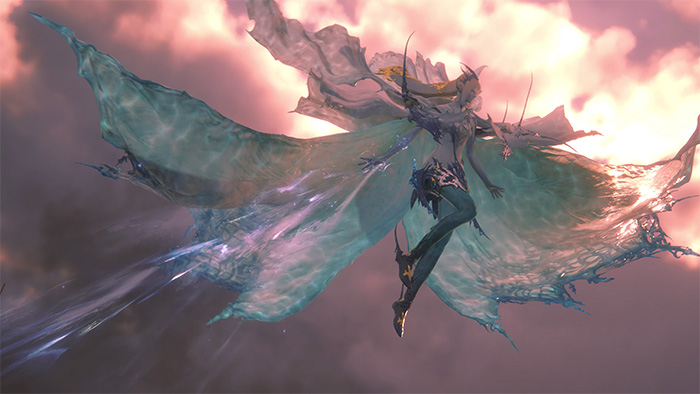
●How was the terminology for summons handled in French?
Eve (French Localization Director):
In Japanese the term shōkanjū, which literally means “summoned creature”, has been used pretty consistently through most of the FINAL FANTASY series, but in the European versions several terms are used. In French, we had originally used the term chimère, or “chimera”, an interesting translation that also means “illusion” or “dream”. While it's a creative choice, we unfortunately had to give up on it as the chimera started appearing as a regular enemy. [laughs]
In the case of FINAL FANTASY XVI, since the summons are actually humans, it did not work that well with a word that makes you think of an otherworldly being, so in the end we opted for the term “Primordial”, which is a term that initially we created for the summons in XIV, and means “original, fundamental”. In FFXVI especially, there’s an overall theme of elements linked to the summons. So, we thought that Primordial would fit that theme well, plus it’s so reminiscent of the primary colors, which we thought resonates well with the concept of summons in this game.
●And how about Castilian Spanish?
Manuel (Castilian Spanish Localization Director):
I remember at the very beginning of the project when I was assigned, I received a file that contained the exact explanation Koji gave. I thought it worked perfectly in Castilian Spanish. We also have the word “iconic", which is “icónico", and it carries the same double meaning. The explanation fit perfectly, so I didn’t need to adapt anything.
●That’s awesome, what a great coincidence!
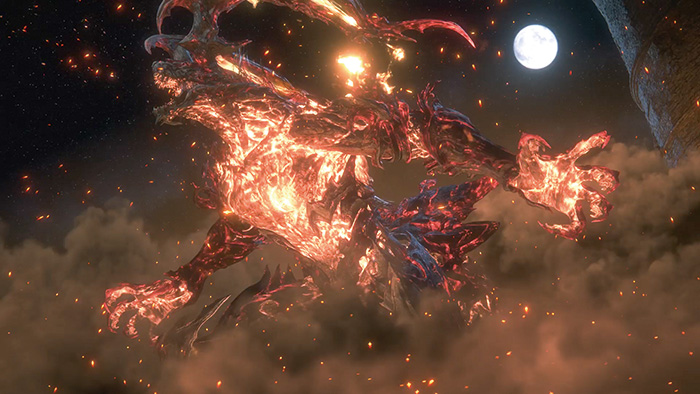
●So, for our last question, is there anything left over you’d like to say? Things you’re particularly proud of having worked on this project, final words you’d like to share with the fans or anything else.
Koji (Localization Director):
I mean, there’s a lot of things to be proud of on this project. The one thing that gave me the feels was the first time I heard fans say, “I think I’m going to play this FINAL FANTASY in English”. You know, the hardcore fans a lot of times will stick to the idea that Japanese is the original source language, and I get it, because typically the motion capture and original recording were in Japanese, the characters were all created by the Japanese voice actors - it’s going to be a lot more natural and coherent experience if you’re playing in that source language. So, to have fans actually watch the first trailer and decide to play in English for the first time – that for me, I was like *gasps*. [laughs]
But the thing that I’m most proud of, at least on this project, is the people that I’ve worked with, my localization team. I’m most proud of John Taylor, I’m most proud of the guys at Shloc, Morgan Rushton and Oli Chance, and Phil Bright. Also Jake Ayres, and really everybody that I’ve worked with. I’m probably forgetting people – all the voice actors, everyone who came together and helped create this project.
A lot of times, because I’m the one that’s in these interviews, people will say “oh, Koji, he did a great translation”, and I often want to say it’s not ME, though, that did those lines. Well, sometimes it is, but sometimes it isn’t, and there’s no way you could do a game of this size by yourself. I mean, I probably could if you gave me like five or six years! [laughs] But then the game would never come out. It happens because I had all these great people that I’ve been working with who have worked on probably thousands of games combined in their long histories in the industry, and so I was super proud of the team because we all came together and kicked ass on this collectively, and that was great.
For the fans, again, you’re the reason why we do this. We’re fans ourselves and when localizing, we put ourselves in the shoes of someone playing this game and ask “how would I want Clive to react to this situation? what would I want him to say here?” and hopefully we’re getting it right most of the time. I know that every fan is different and so each person is going to have different needs, but we’re just trying to create something that we as fans enjoy so that hopefully all the other fans out there in the world can enjoy it as well.
Eve (French Localization Director):
This was a very challenging project to work on in many aspects. For French, or really all languages, we had COVID hitting us in the middle of the project and because of that couldn’t attend recordings in person, but we still managed to make everything work remotely through a lot of patience and late nights. [laughs]
I have to thank the French translators who worked on the game, because most of them live in Japan and we often had recording sessions ending at 2 or 3 a.m., as the recording was done in Paris. The team still held up to it and worked really hard, though, so I have to commend them. The studio also did a fantastic job, and there was some great teamwork with them in the recordings, helping direct the voice actors while being in live sessions every time, for every recording. That was also a lot of work.
Regarding the translation itself, I think we found a good balance between making a quality localization while sounding natural, but also staying faithful to the source text, which can be challenging.
There’s a lot of debate recently about localization and how it should be. I think the methodology and localization practices are different depending on the country and culture, so it’s difficult to make a global call and assess what is or isn’t good. But as far as French speaking countries are concerned, our team tries to make it the best for our audience while working hand in hand with the dev team - getting feedback from them, asking questions, getting their approval, consulting with them. We strive to have a good quality while staying faithful to the writer's intent. For FFXVI, we tried to make it a big collaborative effort with various localization teams and the development team and, hopefully, the players enjoyed our work.
To all the fans - like Koji said, we are also gamers and are in this position where we try to think of how players would like things to sound, and at the same time we also try to convey that to the development team, trying to always look at the player feedback and carry it over. There are many times where we talk to the development team about how one aspect might not be well perceived by the players, or if we could do this the players would really like it. That’s also one of our roles as the internal localization team. So, I hope the players rest assured that we listen to them and aim for the best quality. It is hard to please everyone, but we try to please as many as we can. Whatever language you played in, we hope you enjoyed the game!
Manuel (Castilian Spanish Localization Director):
I’m also really proud of my teammate, Pedro Solano, a translator from Shinyuden. We learned a lot from each other and I think we did a great job together.
As a message to the fans: please enjoy the game and the entire saga that has enriched our lives so much. The creators have poured their hearts and souls into it.
●Thank you all once again for taking the time to share with us today!
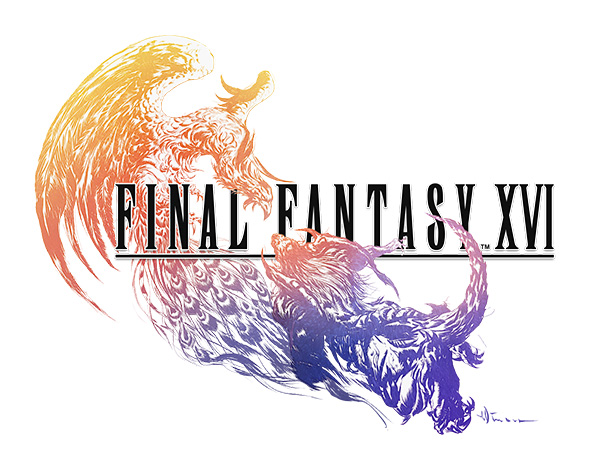
DLC Available Now!
*To enjoy this DLC content, you must have the FINAL FANTASY XVI base game installed. An internet connection is also required in order to update the base game to the latest version. Items included in this Expansion Pass are also sold separately. Please be sure that you do not already own either of these DLC before purchasing.
*For details visit the FINAL FANTASY XVI official site.
Free demo for FINAL FANTASY XVI available now!
Players can experience the beginning of Clive's epic tale and learn about his ambitions and goals for free, by downloading the FINAL FANTASY XVI Demo on the PlayStation™Store at: https://store.playstation.com/product/UP0082-PPSA13802_00-FF16DEMO00000000
FINAL FANTASY XVI is rated M (Mature) and is now available for PlayStation®5 and PC via Steam® and Epic Games Store.
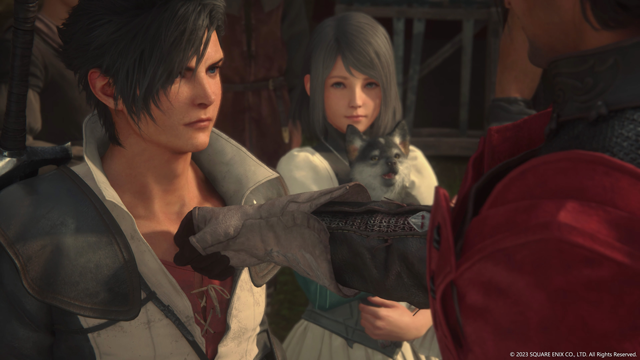
FINAL FANTASY XVI introduces players to an all-new story in the FINAL FANTASY universe, an epic dark fantasy that takes place in the realm of Valisthea – a land blessed in the light of the Mothercrystals, and where peace falters as the spread of the Blight threatens to destroy their dominions. The fate of the land is decided by the Eikons, mighty summoned beasts and their Dominants, men and women who have been blessed with the ability to call upon and wield them. This is the tale of Clive Rosfield, a warrior granted the title “First Shield of Rosaria” and sworn to protect his younger brother Joshua, the Dominant of the Phoenix, Eikon of Fire. Before long, Clive will be caught up in a great tragedy and swear revenge on the Dark Eikon known as Ifrit, a mysterious entity that brings calamity in its wake.
Characters
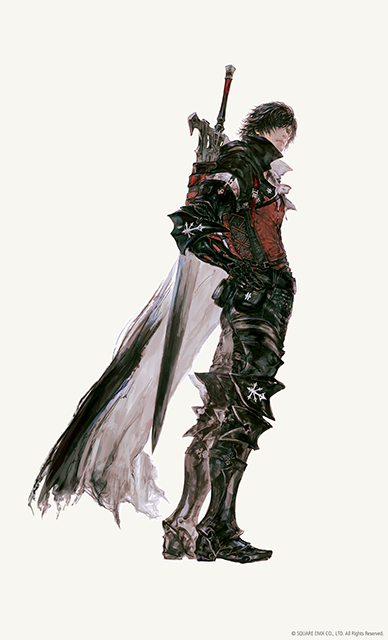
Clive Rosfield
The firstborn son of the Archduke of Rosaria. Though all expected him to inherit the Phoenix's flames and awaken as its Dominant, destiny instead chose his younger brother Joshua to bear this burden. In search of a role of his own, Clive dedicated himself to mastering the blade. His practice pays off when, at just fifteen years of age, he wins the ducal tournament and is dubbed the First Shield of Rosaria—tasked to guard the Phoenix and blessed with the ability to wield a part of his fire. Alas, Clive's promising career is to end in tragedy at the hands of a mysterious dark Eikon, Ifrit, setting him on a dangerous road to revenge.
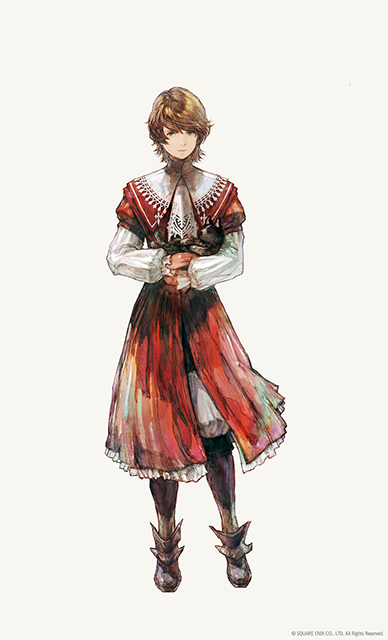
Joshua Rosfield
The second son of the Archduke of Rosaria and Clive's younger brother by five years. Joshua awoke as the Dominant of the Phoenix soon after his birth. Despite his noble upbringing, Joshua treats all his father's subjects with warmth and affection—none more so than Clive, whom he deeply admires. Joshua often laments that it was he, the frail and bookish younger son, who was granted command of the firebird's flames, and not his stronger, braver brother. While Clive will gladly throw himself into any danger, Joshua quails at the sight of a carrot on his dinner plate. But carrots become the least of his concern when he, too, is swept up into the tragic events that change Clive's life forever.
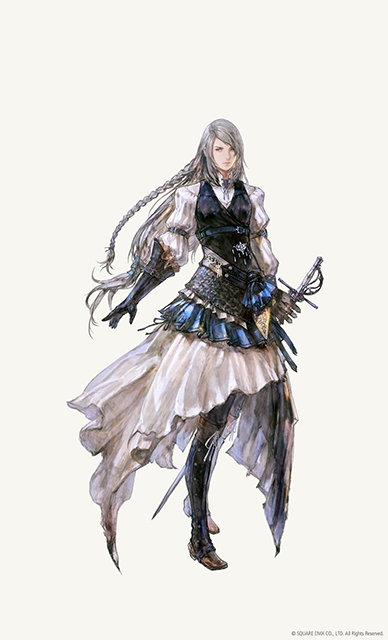
Jill Warrick
Born in the fallen Northern Territories, Jill was taken from her homeland at a tender age to become a ward of Rosaria. The Archduke insisted that she be raised alongside his sons, and she became as much a part of the Rosfield household as Clive and Joshua. Alas, fate was not finished with her yet—it saw the three torn apart, and the bone-chilling power of the Eikon Shiva awaken within her.
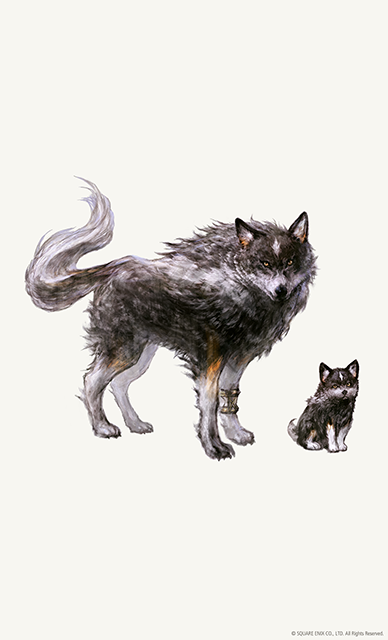
Torgal
Another outcast from the Northern Territories taken in by House Rosfield, Torgal was found alone in a snowfield during one of Archduke Elwin's expeditions to the freezing north, and gifted to his sons upon his return. After somehow surviving the disaster that nearly ended the Rosfield line, he was reunited with Clive over a decade later, and now serves his master with the same fierce loyalty he did when he was but a pup.
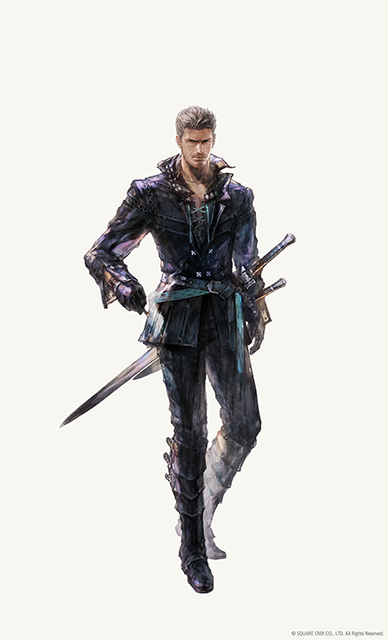
Cidolfus Telamon
Known to his friends as "Cid," this soldier turned outlaw strives to build a place where persecuted Bearers and exploited Dominants can die on their own terms. A man of science, he also conducts research into how one might live in the deadlands—as he and his band of fellow heretics must. Cid is also a Dominant—the power of the Eikon Ramuh having awoken within him shortly after he landed on Valisthean shores. No doubt it was this power that saw him rise through the ranks of the Royal Waloeder Army—where it would seem he crossed paths with a certain Benedikta Harman...


